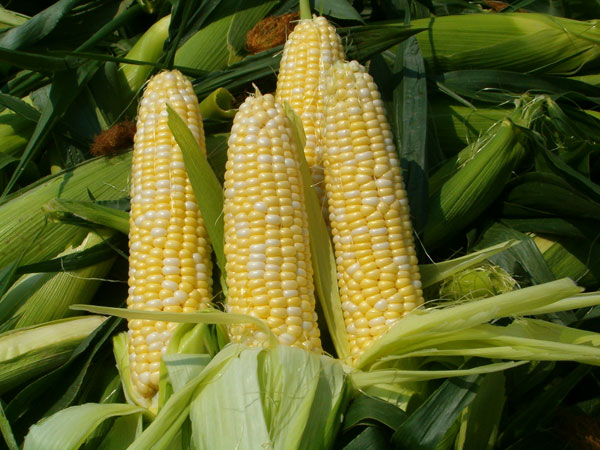Radiation reduction with corn cobs
Scientists from Iwate University in Japan have found an important and cost-effective method to remove radioactive substances and heavy metals from the soil by using activated carbon made from corn cobs.

Activated carbon from corn cobs can be a cheap way to reduce radiation and heavy metals.
Researchers from the sunrise country found that activated carbon, produced from corn cobs, is effective in absorbing radioactive substances, heavy metals and pesticides. This activated carbon absorbs most radioactive substances and salts of heavy metals in the soil.
Experiments showed that the element cesium (Cs) in cabbage, cauliflower grown on soil contaminated with radioactive material, decreased by 60% due to the 'charcoal' purification. People only need to mix soil with coals of a thin layer to plant trees, when harvested, the cesium decreases as above.
The invention of Japanese scientists not only helps to effectively purify radioactive contaminated soil and heavy metals, but also applies to many areas of contaminated agricultural land that enable these places to plant trees. food.
Iwate University scientists hope that the technology is useful in cleaning up soil in a large area that has been contaminated. In fact, Japanese people can perform decontamination of contaminated soil in the vicinity of the Fukushima 1 nuclear power plant that leaked radiation in March last year by this method.
- The 15-year-old has an initiative to clean water with corn cobs
- Turn corn cobs into fuel
- Spain saved nearly 200 million euros thanks to genetically modified corn
- Admire the exotic polychrome corn in America
- The way to make corn is like a rainbow
- The reason for eating corn is healthy
- Drinking corn water, you must know this
- Warning of global danger of globalization
- New generation sweeteners replace diameter
- Technology of corn milk making
- Experience in growing sweet corn
- Video: The most spectacular corn-cutting technology ever seen
 Is the magnetic North Pole shift dangerous to humanity?
Is the magnetic North Pole shift dangerous to humanity? Washington legalizes the recycling of human bodies into fertilizer
Washington legalizes the recycling of human bodies into fertilizer Lightning stone - the mysterious guest
Lightning stone - the mysterious guest Stunned by the mysterious sunset, strange appearance
Stunned by the mysterious sunset, strange appearance